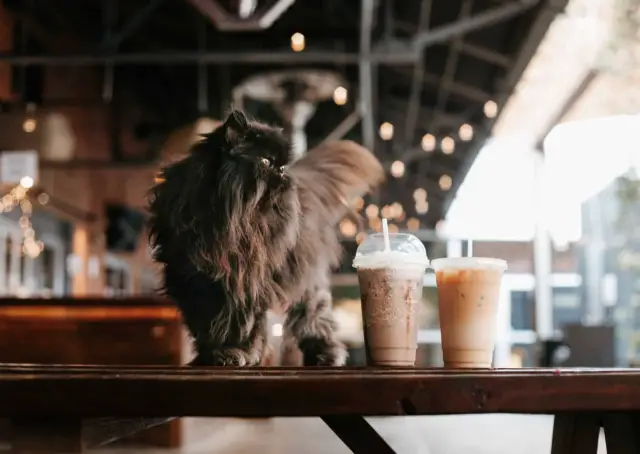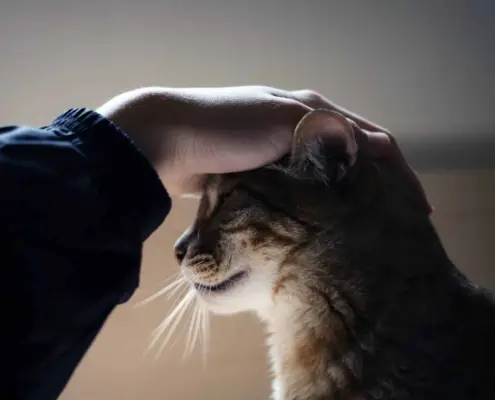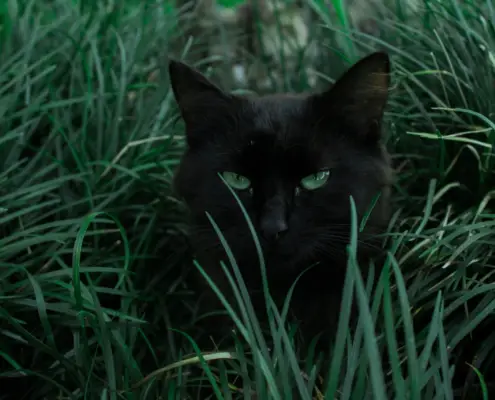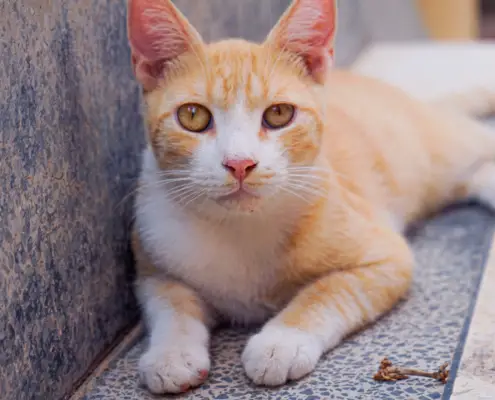
Feline digestion is a complex process that allows cats to obtain the nutrients they need to thrive. Understanding how a cat’s digestive system works can help pet owners make informed decisions about their cat’s diet. Contrary to popular belief, cats are not inherently lactose intolerant. This article aims to debunk the myth surrounding cats and lactose intolerance, shedding light on the truth and providing valuable insights into managing feline digestion.
Common Misconceptions About Cats and Lactose Intolerance
There is a prevalent misconception that cats cannot digest lactose, the sugar found in milk and other dairy products. This belief stems from the observation that some cats experience digestive upset after consuming dairy. However, it is essential to differentiate between lactose intolerance and an actual allergy to dairy products. While some cats may be lactose intolerant, not all felines have issues digesting lactose.
The Truth About Lactose Intolerance in Cats
Lactose intolerance is the inability to digest lactose due to a deficiency of the enzyme lactase, which breaks down lactose into simpler sugars. In cats, the production of lactase decreases after they are weaned off their mother’s milk. This natural decrease in lactase activity can lead to lactose intolerance in some cats. However, it is crucial to note that not all cats will develop lactose intolerance, and each cat’s ability to digest lactose may vary.
Signs and Symptoms of Lactose Intolerance in Cats
Identifying lactose intolerance in cats can be challenging, as the symptoms may overlap with other digestive issues. Common signs of lactose intolerance in cats include diarrhea, flatulence, abdominal discomfort, and vomiting. However, it is essential to consult a veterinarian for an accurate diagnosis, as these symptoms can also indicate various other health conditions.
How to Test for Lactose Intolerance in Cats
If you suspect that your cat may be lactose intolerant, it is advisable to seek professional guidance from a veterinarian. They can perform a lactose tolerance test to determine your cat’s ability to digest lactose. During this test, a small amount of lactose is administered to the cat, and the veterinarian monitors their reaction. A positive test result indicates lactose intolerance, while a negative result suggests that your cat can digest lactose without any issues.
Managing Lactose Intolerance in Cats
If your cat is diagnosed with lactose intolerance, there are several ways to manage their condition and ensure their well-being. The most effective method is to eliminate lactose-containing products from their diet. This means avoiding milk and dairy products altogether. Instead, opt for lactose-free alternatives specifically formulated for cats. Additionally, providing a balanced and nutritious diet that meets your cat’s dietary requirements is crucial for their overall health.
Alternative Options for Cats with Lactose Intolerance
While milk and dairy products may be off-limits for lactose-intolerant cats, there are alternative options to provide them with the necessary nutrients. There are various lactose-free cat milk products available on the market that can be safely consumed by lactose-intolerant cats. Additionally, incorporating high-quality cat food that meets their nutritional needs, such as protein-rich diets, can help compensate for the lack of dairy in their diet.
The Importance of a Balanced Diet for Cats
Regardless of lactose intolerance, maintaining a balanced diet is essential for the overall health and well-being of cats. Cats are obligate carnivores, meaning they require a diet rich in animal protein. Feeding them a mixture of high-quality commercial cat food and occasional treats is recommended. A balanced diet ensures that cats receive all the necessary nutrients, vitamins, and minerals they need to support their digestion and overall health.
Other Common Digestive Issues in Cats
While lactose intolerance is one digestive issue that can affect cats, it is essential to be aware of other common problems. Cats can experience various digestive disorders, including inflammatory bowel disease, pancreatitis, and gastroenteritis. If your cat exhibits persistent digestive issues, it is crucial to consult with a veterinarian for a proper diagnosis and appropriate treatment.
Understanding and Caring for Your Cat’s Digestion
In conclusion, cats are not universally lactose intolerant, although some may develop this condition. Understanding feline digestion is vital for providing the best care for your cat. If you suspect your cat may be lactose intolerant, consult with a veterinarian for accurate diagnosis and guidance on managing their condition. Remember to provide a balanced diet, tailored to your cat’s specific needs, to support their digestion and overall health. By debunking the myth of cats and lactose intolerance, you can ensure that your feline companion enjoys a happy and healthy life.
If you enjoyed my article, I would appreciate you sharing it with your network.

Sima Ndlebe
Sima writes for CatBuzz. He is interested in Cats, Health and Fitness, and Entrepreneurship.
Published: 26 April 2024
Related Articles
Disclaimer
The content found on CatBuzz.org is presented on an "as is" basis and is intended for general consumer information and education purposes only. Any utilization of this information is voluntary and solely at the user's own risk.
None of the articles or content should be regarded as, or used in place of, veterinary medical advice, diagnosis, or treatment. The information provided on the website is purely for educational and informational intentions and should not be considered a substitute for professional guidance from a veterinarian or other qualified expert. The articles are designed to inform consumers about veterinary healthcare and medical matters that may impact their cat's daily life. It should be noted that this website and its services do not constitute the practice of any form of veterinary medical advice, diagnosis, or treatment. CatBuzz.org explicitly disclaims any liability for any direct or indirect damages or losses that may arise from the use of or reliance on the information contained within the content.
Consumers must consult a veterinarian, veterinary specialist, or another qualified veterinary healthcare provider when seeking advice regarding their cat's health or medical conditions. It is important not to ignore, avoid, or postpone seeking medical advice from a veterinarian or other qualified veterinary healthcare provider solely based on information obtained from this website. If you believe that your cat may be experiencing a medical issue or condition, it is imperative to promptly contact a qualified veterinary healthcare professional.



